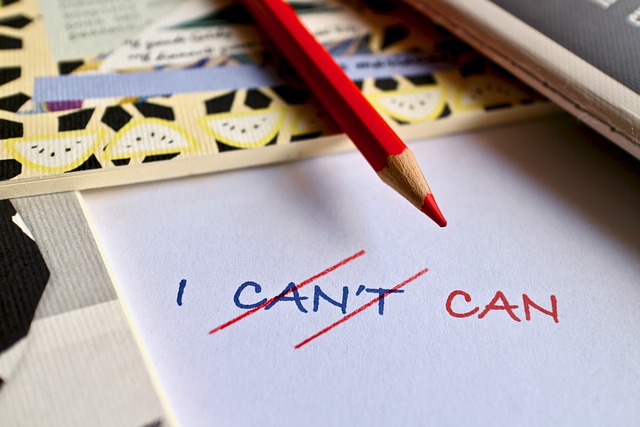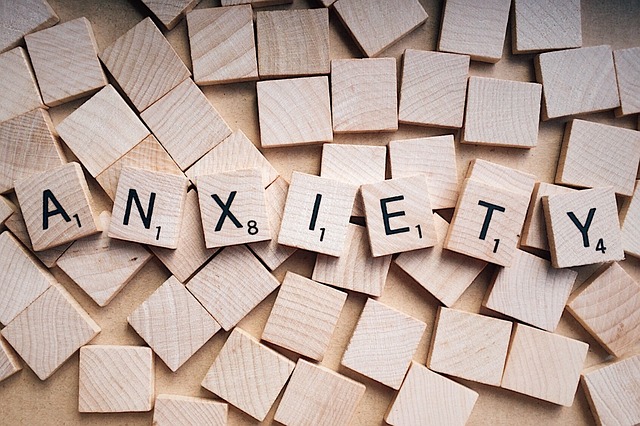There is no issue if you are in a great relationship. However, if your relationship is not healthy, you need to recognize it and try to work it out. Here are some signs that your relationship is not so healthy.
Constant Feeling Stressed
One solid sign that something is awry is when you or your spouse believes the relationship has become a source of stress.
However, whether it’s in an established relationship or a brand-new one, it’s tempting to dismiss those warning signals.
They may serve as a wake-up call that we may have been ignoring a connection, and it needs some attention. Positive physical touch is a tried-and-true method of reducing stress.
Causing Physical Symptoms of Stress
Headaches, upset stomach, chest pains, sleep problems, teeth grinding, and a general feeling of weariness are all common physical symptoms of stress.
If you are experiencing these symptoms in relation to a partner on a frequent basis, there is undoubtedly something wrong that needs to be addressed.
Even if you determine that your stress is due to anything else, there is still a potential that it will cause a chasm in your relationship if those feelings are not acknowledged.
Creating Issues Through Avoidance and Denial
When people begin to fear their contact with loved ones, they are more likely to avoid them. We don’t want to think about the possibility that our marriage or relationship is in trouble.
Most of us are prone to follow the route of least resistance, which is to avoid confronting anything that would demand our energy and effort to change until we absolutely must.
This may avert immediate confrontation, but ignoring difficulties for too long may be taxing on both couples and end up exacerbating problems later on.
Getting Caught Up in ‘Gaslighting’
In this scenario, gaslighting occurs when you detect a problem, but your spouse not only refuses to tackle it but also actively rejects or fabricates justifications to behave as if it does not exist.
This kind of determined denial, particularly from someone close to us, may easily enter our heads and lead us to doubt our observations.
You need to believe that the greatest answer is to follow your instincts and be brutally honest with yourself about the relationship — especially the bits that hurt your ego — whether or not your spouse will do the same.
Reduced Self-Esteem

When anything goes wrong in one of our personal relationships, it may be difficult not to feel as though the situation reflects who we are. Internalization, especially when unjustified, may delve into deeply held fears. Insecurity may be exacerbated to devastating effect if partners have a propensity to project their unhappiness onto others, leading both sides to feel worse about themselves at the conclusion of a debate.
Irritable or erratic behavior might be triggered
One of the most frequent emotional responses to stress, whether inside or outside of a relationship, is becoming unusually testy and angry, particularly with those we care about the most. Attempts to address the underlying issue might trigger outbursts, which are often motivated by a desire to avoid accepting responsibility.
Instigating Conflict
Unresolved concerns may show as negative conduct, such as retaliating against our spouse for perceived slights. We urge couples to set aside their egos and really consider the merits of the other person’s problems. According to research, the easiest approach to escape a harmful cycle of rage and retaliation is to just cease participating in it.
Having an Unequal Give and Take
Accepting and supporting the other person is at the heart of any relationship. When one spouse begins offering too little and expects too much in return, it’s a terrible indicator.
This might imply that one person’s demands for understanding and social attachment – what psychologists refer to as the “desire to belong” – aren’t being addressed, which contributes to unhappiness as the situation persists.
Becoming a Domestic Violence Victim
Most of these relationship issues may be handled productively depending on the circumstances, but even discussing one’s displeasure can be dangerous when the relationship has become violent.
If this is the case, prioritize your own safety and seek professional help from the National Domestic Violence Hotline. Domestic violence is not only physically harmful, but it is also emotionally devastating, resulting in poor self-esteem, self-doubt, and even suicidal thoughts.
Anxiety Triggers
Long-term tension from a stale relationship may generate anxiety, keeping us constantly on edge and worried. When the status of a relationship or the process of a relationship causes fear about the future, safety, or money, it’s more likely to lead to anxiety symptoms.
While this will not result in the spontaneous formation of a diagnosable anxiety disorder, it may definitely result in the presentation of what is known as “sub-clinical” symptoms.
Inducing Social Anxiety
People suffering from social anxiety may benefit from a connection that encourages them to come out of their shells. In contrast, a possessive relationship may worsen social anxiety if one spouse makes the other feel guilty or inadequate when they interact with people outside the relationship.
If unchecked, this type of anxiety can lead to ignoring duties or other relationships, as well as all of the unpleasant, mind-altering consequences of extended solitude.

Anxiety is being fueled.
If concern about the anxiety of the future causes, a feeling of despair is the primary contributor to depression symptoms such as sluggishness, disengagement, and lack of desire.
Relationships that challenge our value and self-worth, such as a spouse or family member who routinely dismisses our contributions, are more likely to feed sadness.
What Is Causing Social Withdrawal?
Social disengagement is a typical symptom of depression that varies from social anxiety in that it is driven by indifference toward social circumstances rather than dread.
And if the only contact we have is with someone who emotionally or physically abuses us, our melancholy and hopelessness may suffocate any desire to seek out other good influences, creating a vicious, isolated cycle.

Developing Self-Sufficiency
Co-dependent partners frequently affirm one another’s conduct or opinions to an unhealthy extent. This relationship might apply not only to excessive drug and alcohol use, but also to psychopathologies or ways of thinking shared by both spouses.
If you have two depressive or two anxious couples, it may be easy for them to encourage each other to the point where they become nearly at ease with their symptoms.
Eating Disorder Initiation
If someone is already self-conscious about their body image, a relationship that makes them feel worthless, as well as feelings of isolation associated with violent or uncommunicative relationships, may lead to the development of an eating disorder.
Compulsive eating, like drug usage, may, on the other hand, become a passive-aggressive coping method for otherwise ignored stress in our job and personal life.
Sleep Disturbing Factors
There is a significant, well-documented correlation between our perception of bodily and mental pain and our capacity to sleep soundly.
A chronically stressful relationship might disrupt our sleep by making it difficult to remain or fall asleep in the first place.
The consequences of sleep deprivation are various and difficult to compensate for, including poor memory, difficulty focusing, moodiness, clumsiness, weight gain, and a weaker immunological system.
Creating a False Sense of Reality
Consistent gaslighting, denial, or other types of dishonesty in a close relationship are certain to have an impact on one’s perception of reality. We prefer to view reality how the people we care about see it because that’s where we gain confirmation of our beliefs.
When that perspective is warped by poor mental health and/or interpersonal processes that support it, that faulty perception is not just preserved, but it is imprinted. Even when we should, it becomes increasingly difficult to question or confront.
As a result, victims of abusive relationships may be cautious, if not hostile, when those outside the relationship dispute their warped ideas while attempting to assist them.
Causing Post-Traumatic Stress Disorder (PTSD)
In more difficult situations of mental and/or physical abuse, a relationship may even induce symptoms of post-traumatic stress disorder as one attempts to overcome the anxieties, doubts, and feelings of false reality implanted in them by their partner.
These symptoms include flashbacks, nightmares, uncontrolled thoughts, and acute anxiety that is out of proportion to the scenario.
Syndrome of a Broken Heart

When an important relationship ends, the emotional sorrow may sometimes be so severe that it shows as a psychosomatic physical disease known as broken heart syndrome.
Shortness of breath and chest pains mirror a heart attack but are caused by a surge of adrenaline and other stress-response chemicals rather than cardiac collapse.
The disorder is uncommon; however, it is most frequent among postmenopausal women and persons who are already experiencing anxious or depressed symptoms.
Exacerbating Existing Problems
Any “toxic” relationship may become a big stressor, exacerbating whatever mental health problems we already have, whether it’s depression, anxiety, social phobia, addiction, or something altogether else.
While it is crucial to have loved ones to lean on for support, studies suggest that remaining in a negative romantic relationship is worse for our mental health than not having a connection at all.
To Conclude
Even though some relationships end in heartbreak, anxiety, and other stressful concerns, it doesn’t imply they’re not worthwhile to pursue in general.
One of the important aspects of mental wellness is having healthy connections. The link between our social lives and our mental health is quite strong in both ways.
With that in mind, if any of these difficulties or symptoms seem familiar, devote some time and attention to fixing them in the relationships you want to keep while politely separating yourself from those you judge unworthy of the emotional effort necessary to heal them.

